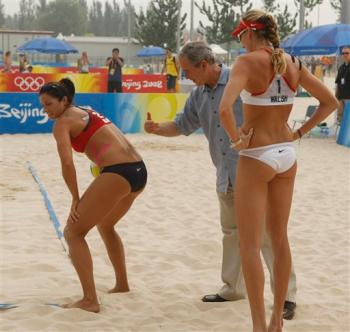I will, eventually, have to break down and get a smart phone. I don’t really want one but not having one is going to be a liability in my job. Articles, like this one from the American Journalism Review, make this increasingly clear.
“In January, ESPN reported it had more hits for NFL content on its mobile Web site (4.9 million) than it did on its PC site (4.5 million), according to RCR Wireless News. Those numbers suggest the mobile jock market has legs, since sports fans will access their cell phones to get scores and inside information even while they’re watching games on TV. Two mobile TV partnerships – AT&T’s Mobile TV and Verizon’s V Cast, both of which use Qualcomm’s MediaFlo TV-enabling technology for cell phones – have been launched with the sports market in mind. Both mobile TV services bill themselves as providing full coverage of sporting events, along with some regular network programming in English and Spanish. Content partners include CBS Mobile, NBC 2Go, Fox Mobile, Comedy Central, ESPN Mobile TV, Viacom’s MTV and Nickelodeon, among others.”
 Big time sports journalist Jay Mariotti has resigned from the Chicago Sun-Times:
Big time sports journalist Jay Mariotti has resigned from the Chicago Sun-Times:
 The live, cell-phone-accessible radio broadcasts—the centerpiece of the new NFL Mobile Live platform–will be available to all Sprint wireless subscribers who purchase a basic data plan as part of their services. In addition, as part of the agreement a select group of premium subscribers will be able to view live broadcasts of the NFL Network’s eight Thursday Night Football games on their phones starting on Nov. 6.” — MEDIA WEEK
The live, cell-phone-accessible radio broadcasts—the centerpiece of the new NFL Mobile Live platform–will be available to all Sprint wireless subscribers who purchase a basic data plan as part of their services. In addition, as part of the agreement a select group of premium subscribers will be able to view live broadcasts of the NFL Network’s eight Thursday Night Football games on their phones starting on Nov. 6.” — MEDIA WEEK
 I’ve packed my little bag and said goodbye to Barb. As soon as I can come up with Kerri Walsh’s phone number I’m going to call her and have her come get me. We’ll tell people I’m her father (okay, her grandfather). I’ll be the one crouched by the net, ready to towel off my Goddess of Beach Volleyball.
I’ve packed my little bag and said goodbye to Barb. As soon as I can come up with Kerri Walsh’s phone number I’m going to call her and have her come get me. We’ll tell people I’m her father (okay, her grandfather). I’ll be the one crouched by the net, ready to towel off my Goddess of Beach Volleyball.